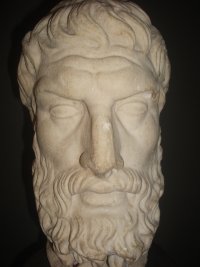|
 Now in the final phase of his academic career, Chris continues to work on metrical matters and problems relating to poetic form. In 2015 he hosted a small symposium on English metrics at the University of Essex. His most recent articles relate to counting, closure and the representation of metre, particularly in earlier forms of English verse. In 2021, and along with other members of the 2015 'Essex group', Chris expects to contribute to a symposium - part of the International Conference on English Historical Linguistics hosted by Leiden University (NL) - on the value of early English metrics to the reconstruction of the history of English, and has also indicated his willingness to edit the proceedings of that symposium together with his colleague Prof. Donka Minkova (UCLA) for a special issue of English Language and Literature. To read a draft copy of one of Chris's recent (2017) essays on metrics (published in PNReview 237, pp.54-61 as 'Beginning with endings: An essay on prosody') please click on the relevant link below.
Now in the final phase of his academic career, Chris continues to work on metrical matters and problems relating to poetic form. In 2015 he hosted a small symposium on English metrics at the University of Essex. His most recent articles relate to counting, closure and the representation of metre, particularly in earlier forms of English verse. In 2021, and along with other members of the 2015 'Essex group', Chris expects to contribute to a symposium - part of the International Conference on English Historical Linguistics hosted by Leiden University (NL) - on the value of early English metrics to the reconstruction of the history of English, and has also indicated his willingness to edit the proceedings of that symposium together with his colleague Prof. Donka Minkova (UCLA) for a special issue of English Language and Literature. To read a draft copy of one of Chris's recent (2017) essays on metrics (published in PNReview 237, pp.54-61 as 'Beginning with endings: An essay on prosody') please click on the relevant link below.
Another, probably final, strand to Chris's research has been some work on dragons and the narratology of dragons in Western literature (particularly English literature). Chris chose to talk about both metrics and dragons in his professorial inaugural lecture (postponed from 2020) but has just completed writing up the draft of an article themed more specifically around dragons and their narratological meanings. You can open a draft version of that article by clicking on the relevant link below. (Please ask for copyright permission and thereafter acknowledge this work, incidentally, if you use or cite anything from it.)
|



